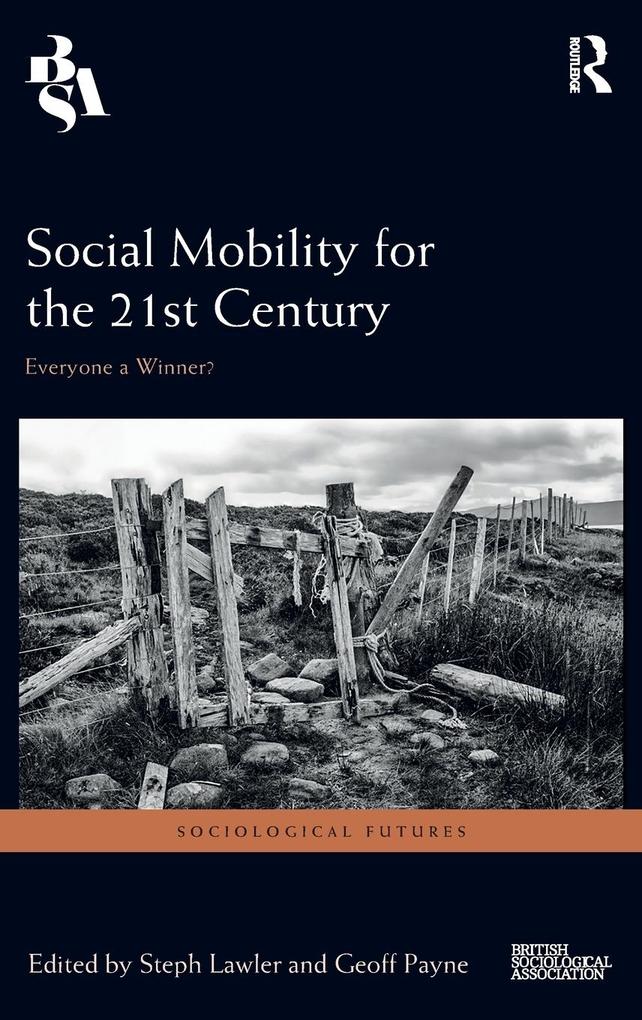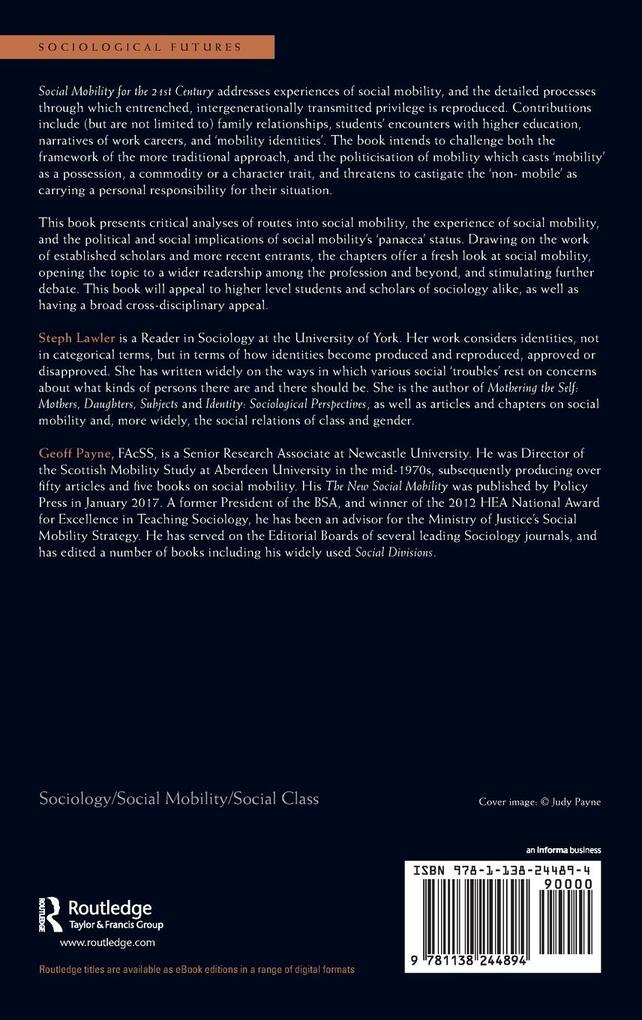
Zustellung: Sa, 28.06. - Mi, 02.07.
Versand in 1-2 Wochen
VersandkostenfreiBestellen & in Filiale abholen:
This book presents critical analyses of routes into social mobility, the experience of social mobility, and the political and social implications of social mobility's 'panacea' status. Drawing on the work of established scholars and more recent entrants, the chapters will offer a fresh look at social mobility, opening up the topic to a wider readership among the profession and beyond, and stimulating further debate. This book will appeal to higher level students and scholars of sociology alike, as well as having a broad cross disciplinary appeal.
Inhaltsverzeichnis
Introduction: everyone a winner?, Steph Lawler and Geoff Payne 1. Social Mobility: which ways now?, Geoff Payne 2. Disruption in the working-class family: the early origins of social mobility and habitus clivé, Mark Mallman 3. Mobile immobilities: the formation of habitus in 'disadvantaged' families, Maria Gardner, Kirsty Morrin and Geoff Payne 4. Getting up and staying up: understanding social mobility over three generations in Britain, Vikki Boliver and Alice Sullivan 5. Time, accumulation and trajectory: Bourdieu and social mobility, Sam Friedman and Mike Savage 6. Moving on up? Social mobility, class and higher education, Harriet Bradley 7. 'To become upwardly mobile you have to be a Swede': women's upward class mobility in the neo-liberal Swedish welfare state context, Lena Sohl 8. Experiencing upward mobility: the case of self-employed businessmen, Andreas Giazitzoglu 9. Social mobility talk: class-making in neo-liberal times, Steph Lawler 10. Promoting young people's social mobility: applying sociological perspectives to frame social policy objectives, Tony Chapman 11. The cruelty of social mobility: individual success at the cost of collective failure, Diane Reay
Produktdetails
Erscheinungsdatum
18. Januar 2018
Sprache
englisch
Seitenanzahl
200
Herausgegeben von
Steph Lawler, Geoff Payne
Verlag/Hersteller
Produktart
gebunden
Gewicht
470 g
Größe (L/B/H)
240/161/15 mm
ISBN
9781138244894
Entdecken Sie mehr
Bewertungen
0 Bewertungen
Es wurden noch keine Bewertungen abgegeben. Schreiben Sie die erste Bewertung zu "Social Mobility for the 21st Century" und helfen Sie damit anderen bei der Kaufentscheidung.









